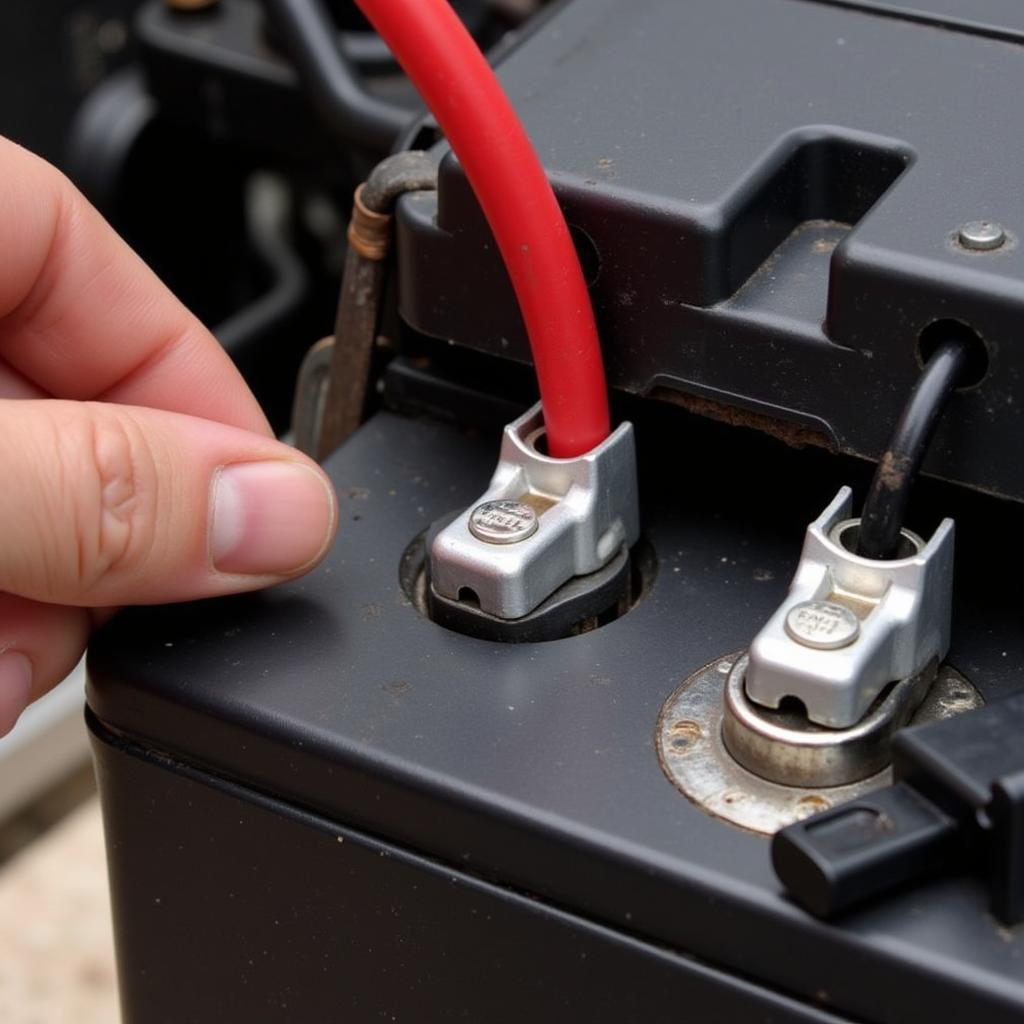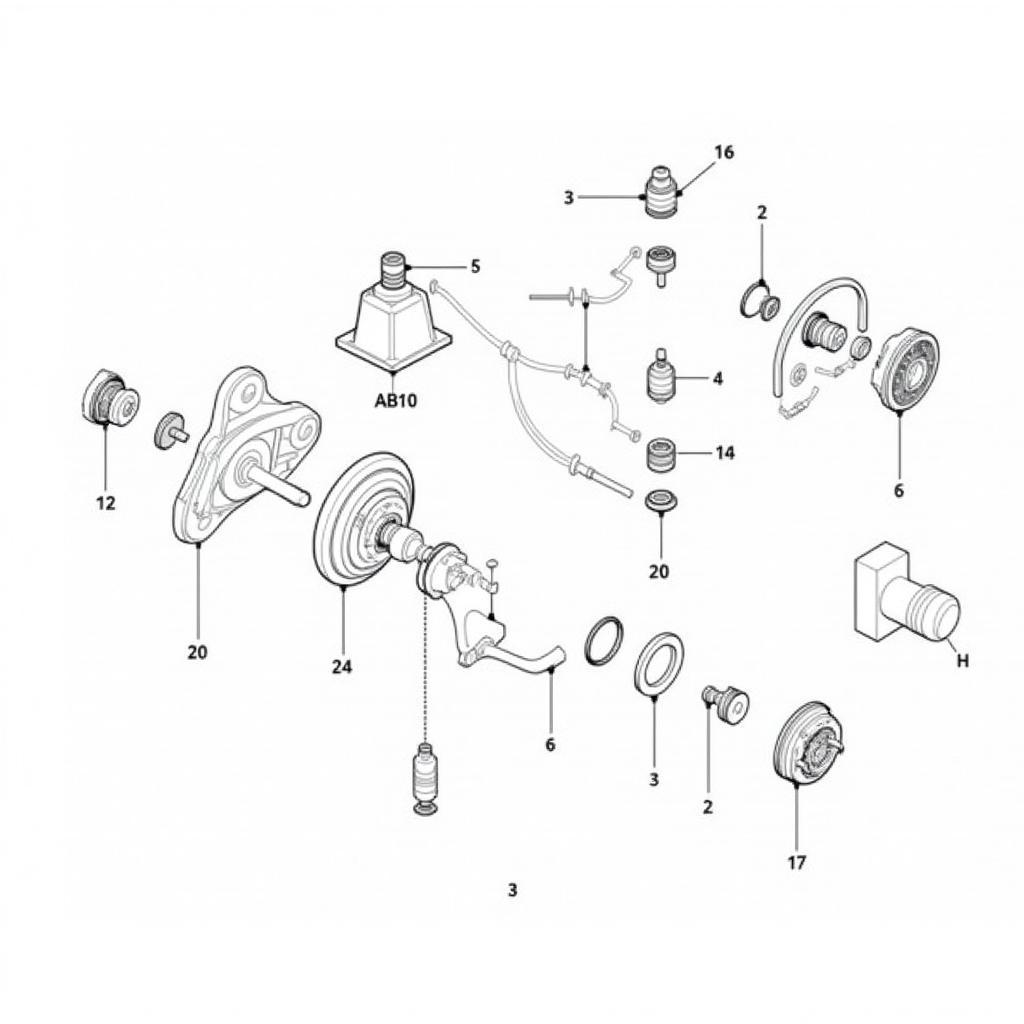Experiencing a dead battery in your RV can quickly derail your travel plans. If your RV engine battery keeps dying, this comprehensive guide will help you diagnose the problem and get you back on the road. We’ll explore the common culprits, offer troubleshooting steps, and discuss preventative measures to keep your battery healthy.
Why Does My RV Engine Battery Keep Dying?
Several factors can contribute to a continually draining RV engine battery. Understanding the underlying cause is crucial for effective troubleshooting. These factors range from simple parasitic drains to more complex alternator issues. Let’s delve into the most common reasons your RV engine battery keeps dying.
Parasitic Drains
A parasitic drain occurs when a device or system in your RV continues to draw power even when the engine is off. This can be as simple as a forgotten interior light or a more complex issue with a faulty component. parasitic drain test car battery testing can help pinpoint the source of the drain.
Faulty Alternator
The alternator is responsible for recharging the battery while the engine is running. A malfunctioning alternator won’t adequately charge the battery, leading to a dead battery. Signs of a bad alternator include dimming headlights, flickering dashboard lights, and a whining noise from the engine compartment.
Old Battery
Batteries have a limited lifespan. An old or worn-out battery may not hold a charge effectively, even if the charging system is working correctly. If your battery is several years old, it might be time for a replacement.
Troubleshooting a Dying RV Engine Battery
 Checking RV Battery Connections
Checking RV Battery Connections
Here are some steps to troubleshoot your RV’s battery woes:
- Check the battery terminals: Ensure the terminals are clean and free of corrosion. Tighten any loose connections.
- Test the battery voltage: Use a multimeter to check the battery’s voltage. A fully charged battery should read around 12.6 volts. battery draining car problems can often be traced back to low voltage readings.
- Inspect the alternator: Have the alternator tested at a local auto parts store or repair shop. A faulty alternator will need to be replaced.
- Perform a parasitic drain test: This test involves disconnecting the negative battery cable and measuring the current draw with a multimeter. If the current draw is excessive, it indicates a parasitic drain.
Utilizing Remote Diagnostics
If you’re comfortable with technology, remote diagnostics and software installation can be invaluable. These services allow technicians to analyze your vehicle’s data remotely and identify potential problems. In some cases, software updates can even be installed remotely to address specific issues.
Preventative Measures
Taking preventative measures can help prolong the life of your RV’s engine battery and prevent future issues:
- Regularly clean the battery terminals: Corrosion can impede the flow of current.
- Disconnect the battery when storing the RV: This prevents parasitic drains from depleting the battery.
- Fully charge the battery before each trip: A fully charged battery is less susceptible to damage.
- Consider installing a battery disconnect switch: This makes it easy to disconnect the battery when the RV is not in use.
- Keep track of your battery’s age: Replace the battery every 3-5 years, depending on usage.
Conclusion
A dying RV engine battery can be frustrating, but with the right approach, you can diagnose and solve the problem. By understanding the common causes, performing proper troubleshooting steps, and implementing preventative measures, you can keep your RV’s battery healthy and enjoy uninterrupted travels. Don’t let a dead battery ruin your next adventure. If your RV engine battery keeps dying, take action now! If you are unsure about anything or a new battery in car keeps dying, it’s always best to consult a qualified RV technician. For specific issues with CRVs, you may find helpful information at crv dead battery. Also, consider the implications if your car battery is dead will it recharge itself before attempting to jump-start or charge it.
FAQ
-
How long should an RV engine battery last? Typically, an RV engine battery lasts 3-5 years.
-
Can a dead RV engine battery be recharged? Yes, in most cases, a dead RV engine battery can be recharged.
-
What is the most common cause of a dying RV engine battery? Parasitic drains are often the culprit behind a dying RV engine battery.
-
How do I test my RV alternator? You can test your RV alternator using a multimeter or have it tested at a local auto parts store.
-
What is a parasitic drain test? A parasitic drain test measures the current draw from the battery when the engine is off to identify any devices or systems that are consuming power unnecessarily.
-
How can I prevent my RV engine battery from dying? Regularly cleaning terminals, disconnecting the battery during storage, and fully charging before trips are good preventative measures.
-
Should I replace my RV engine battery with a deep-cycle battery? While deep-cycle batteries are designed for different applications, they are sometimes used for starting RVs as well. Consult with a qualified technician to determine the best battery for your specific RV.


